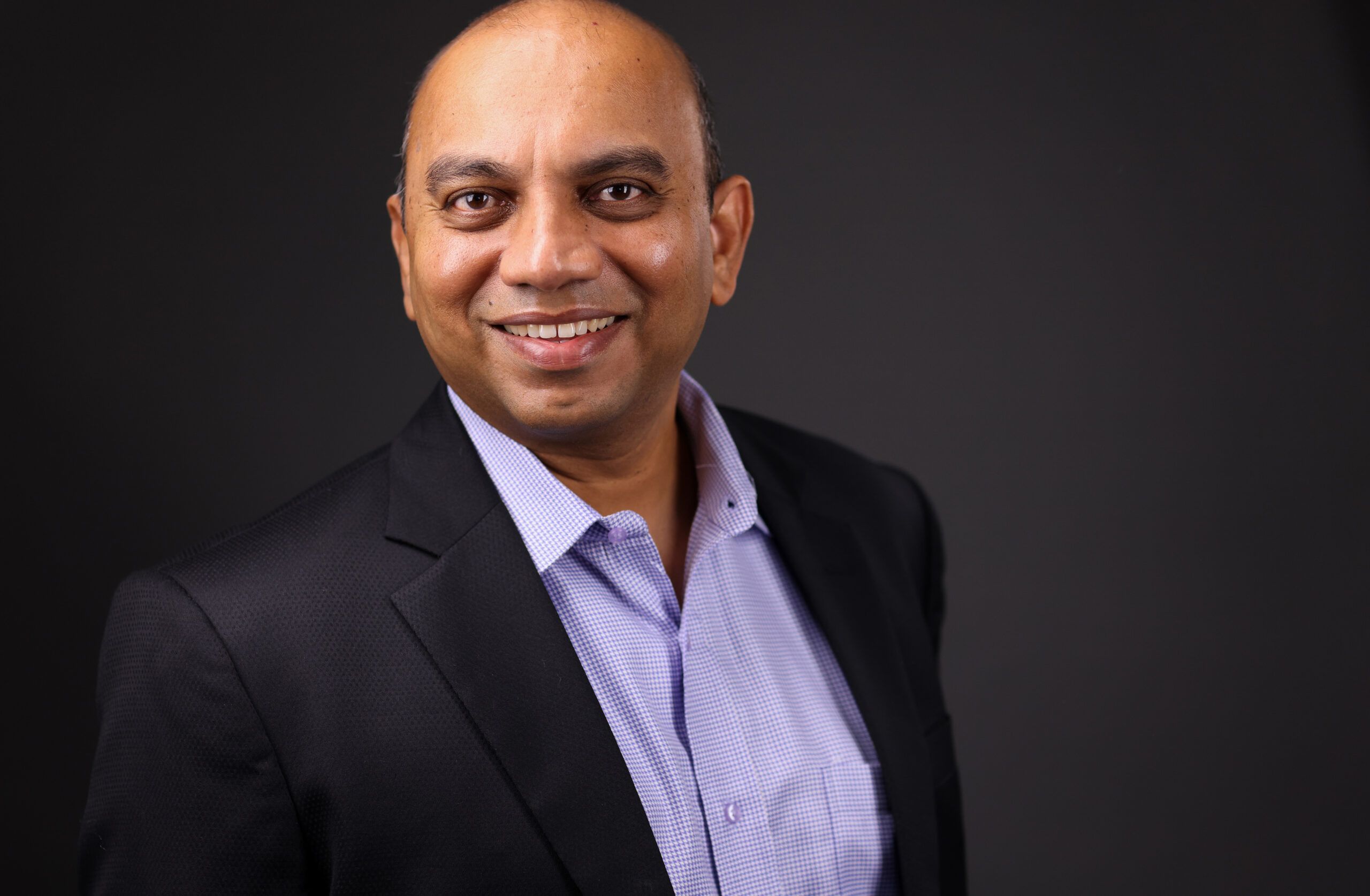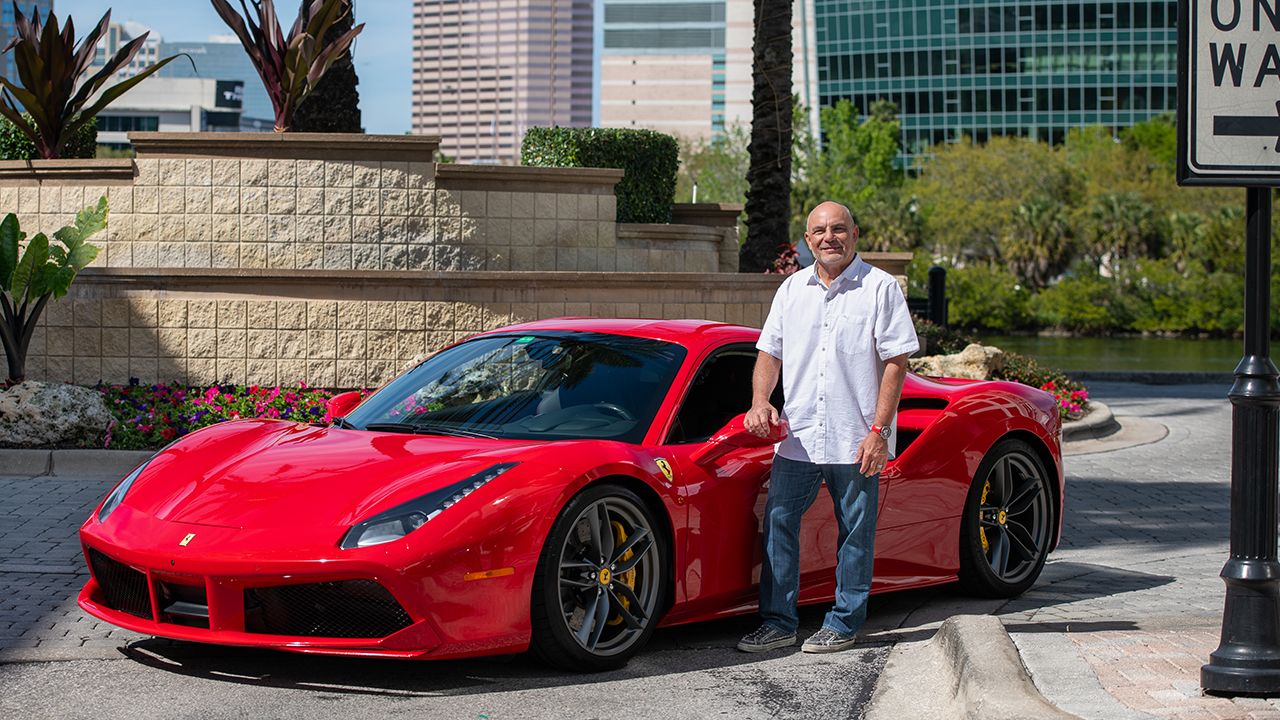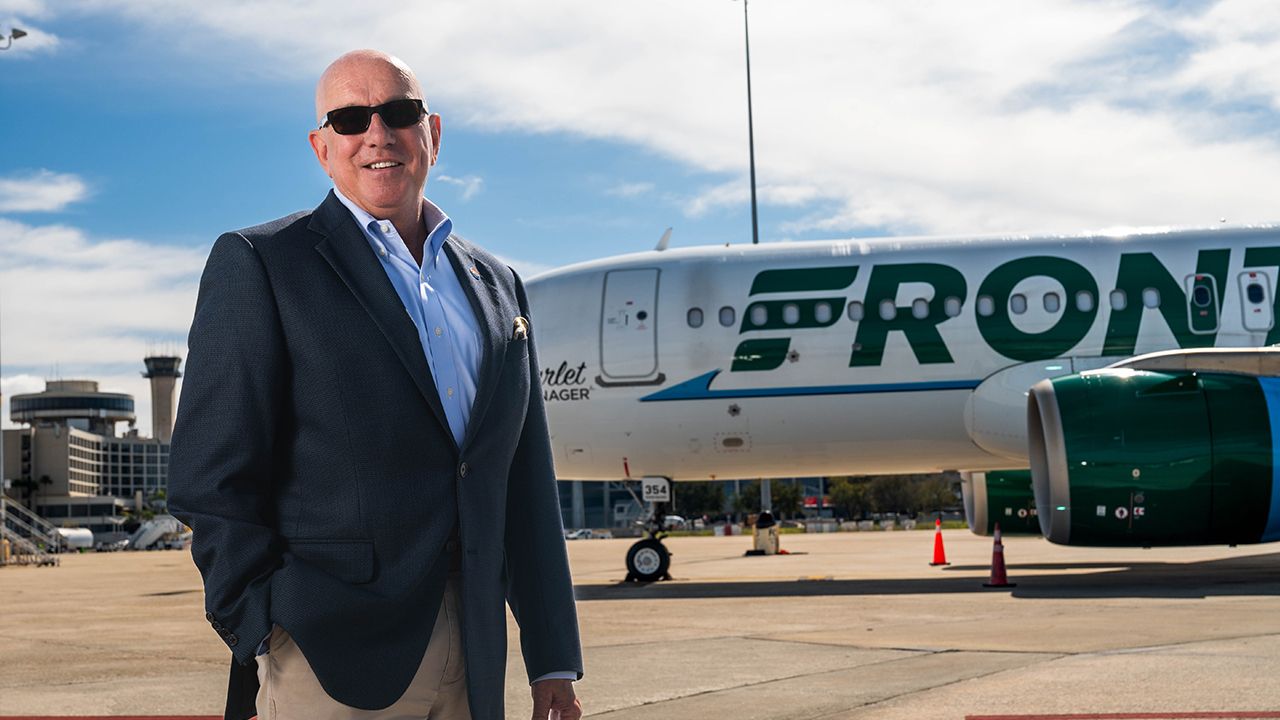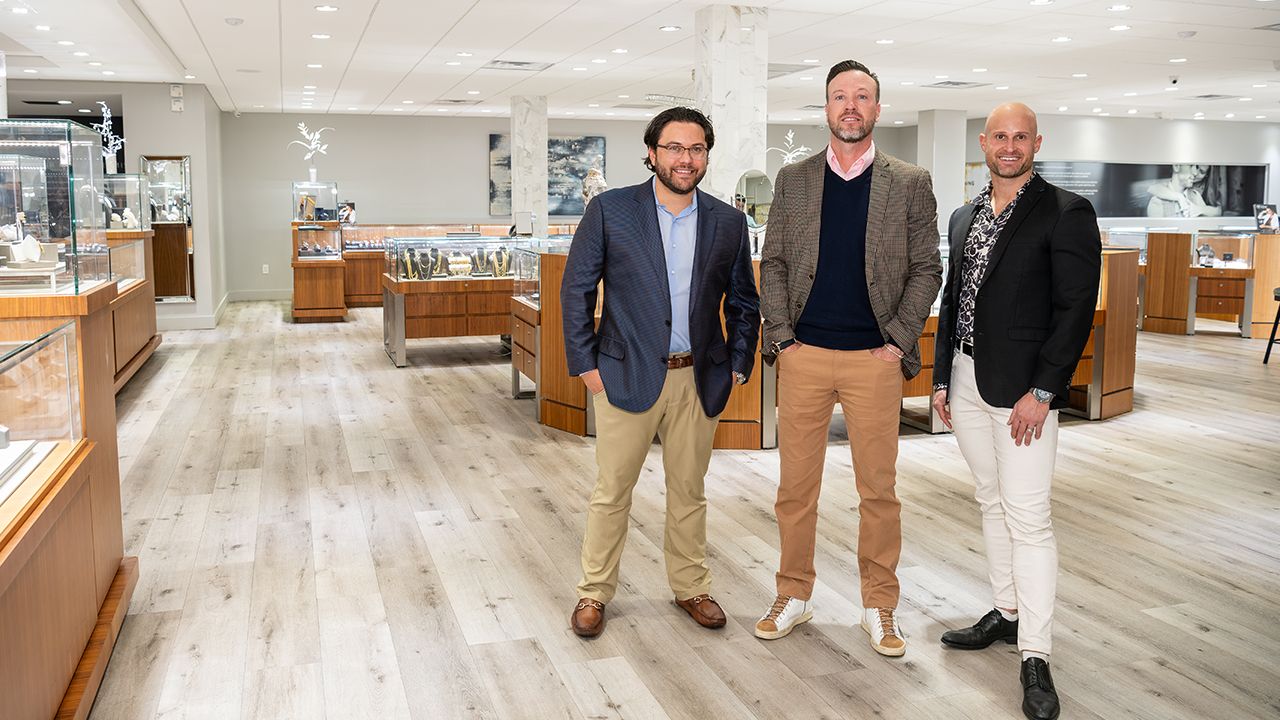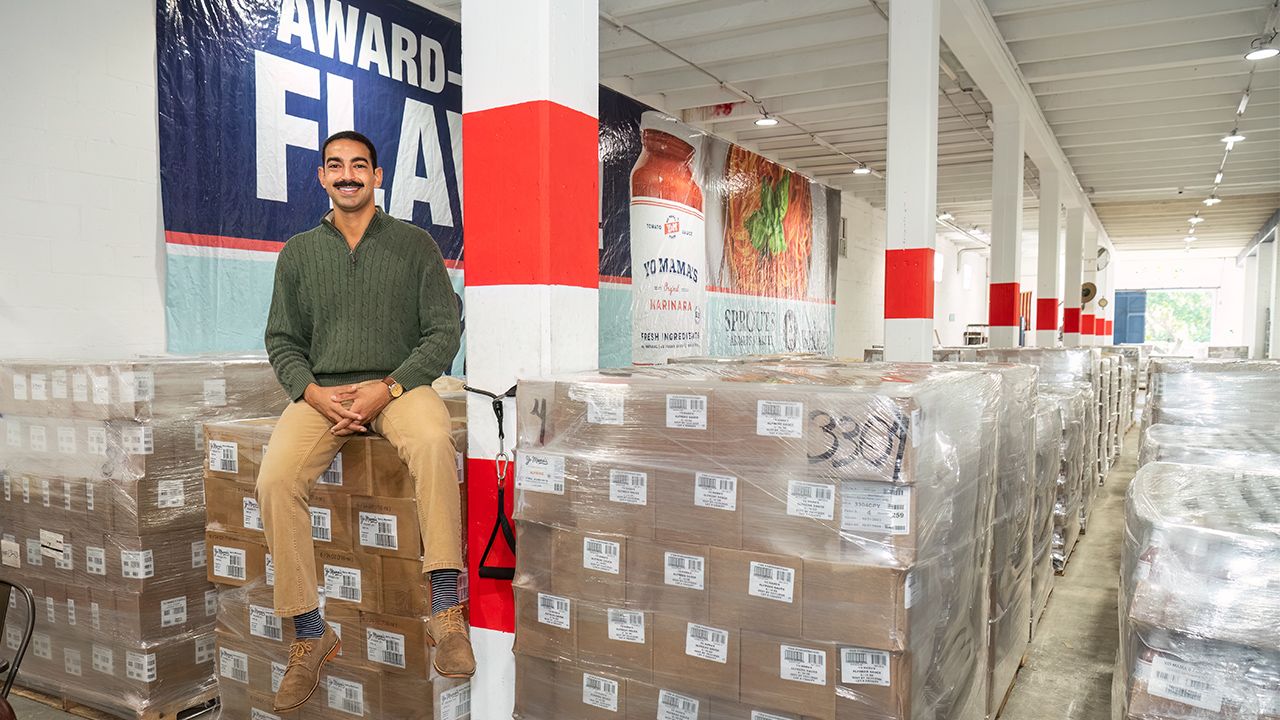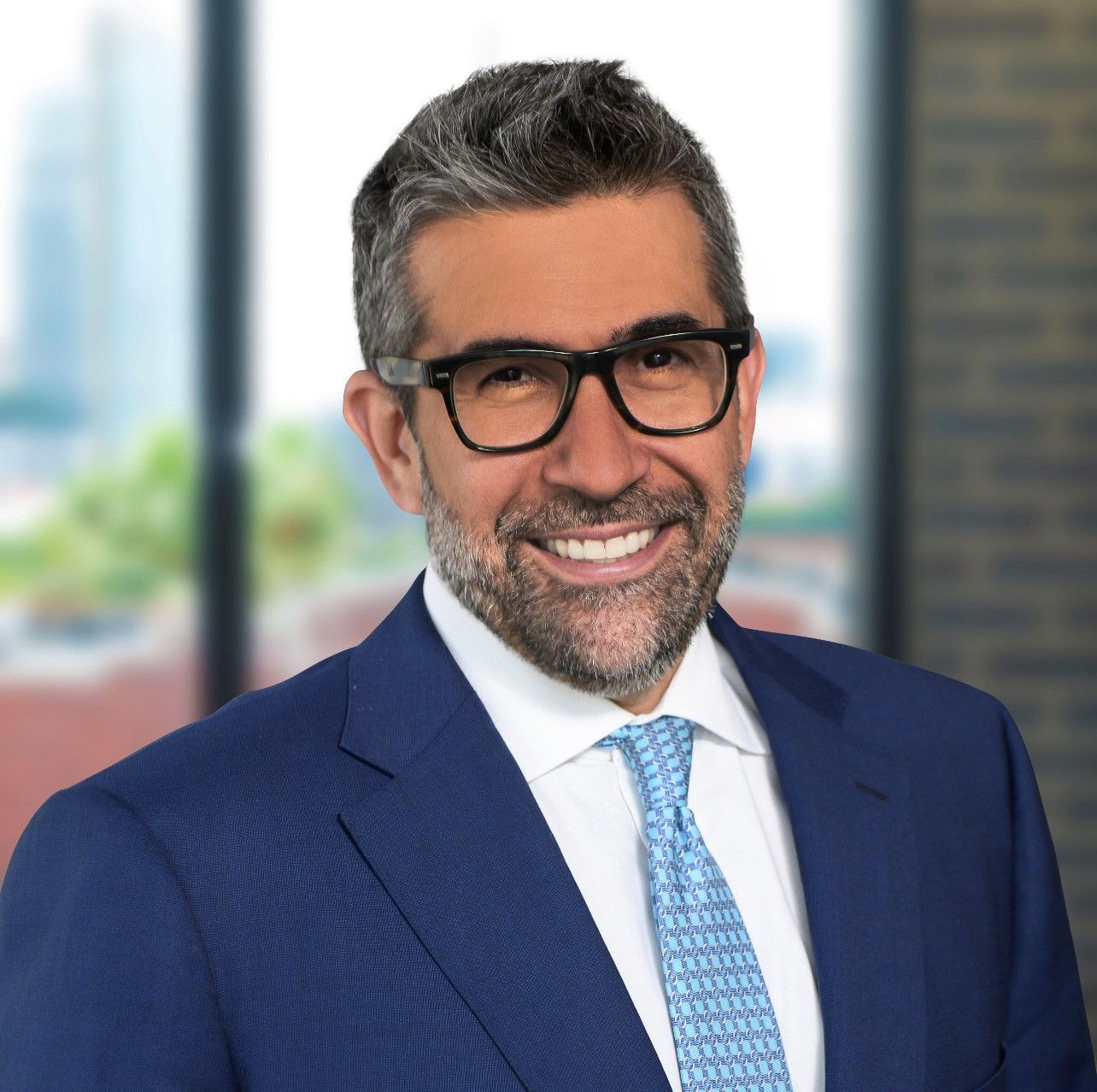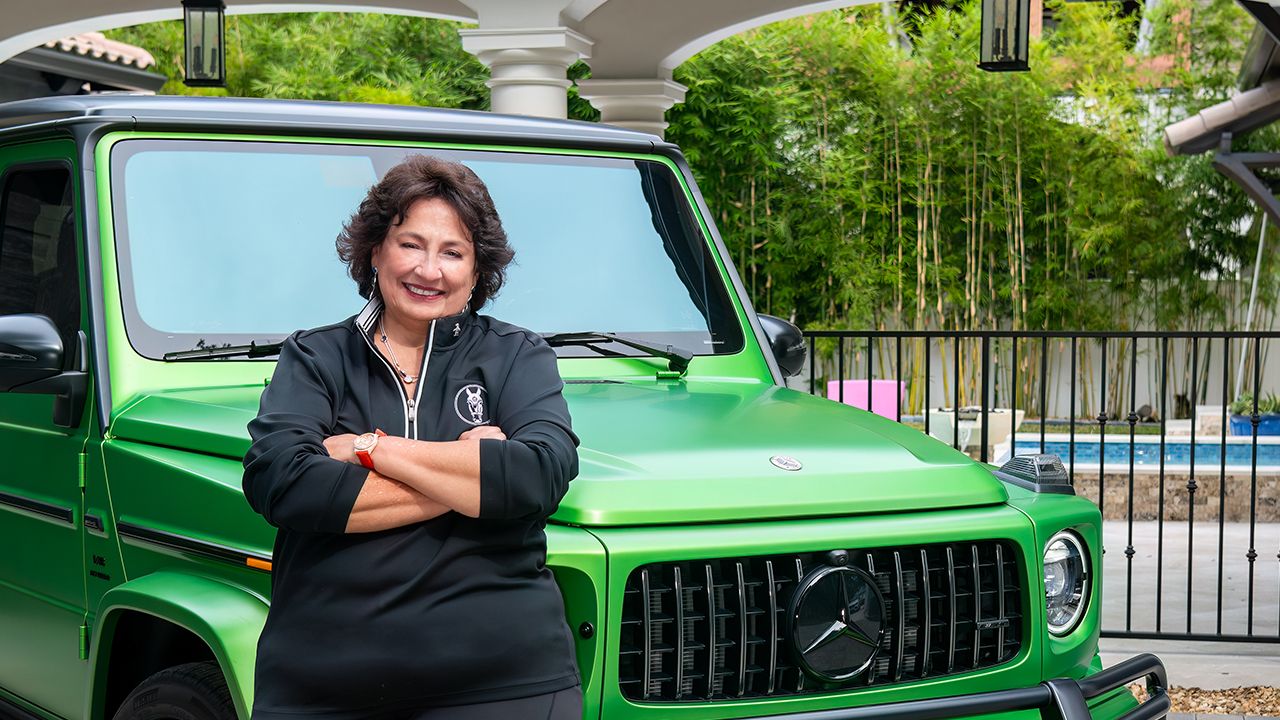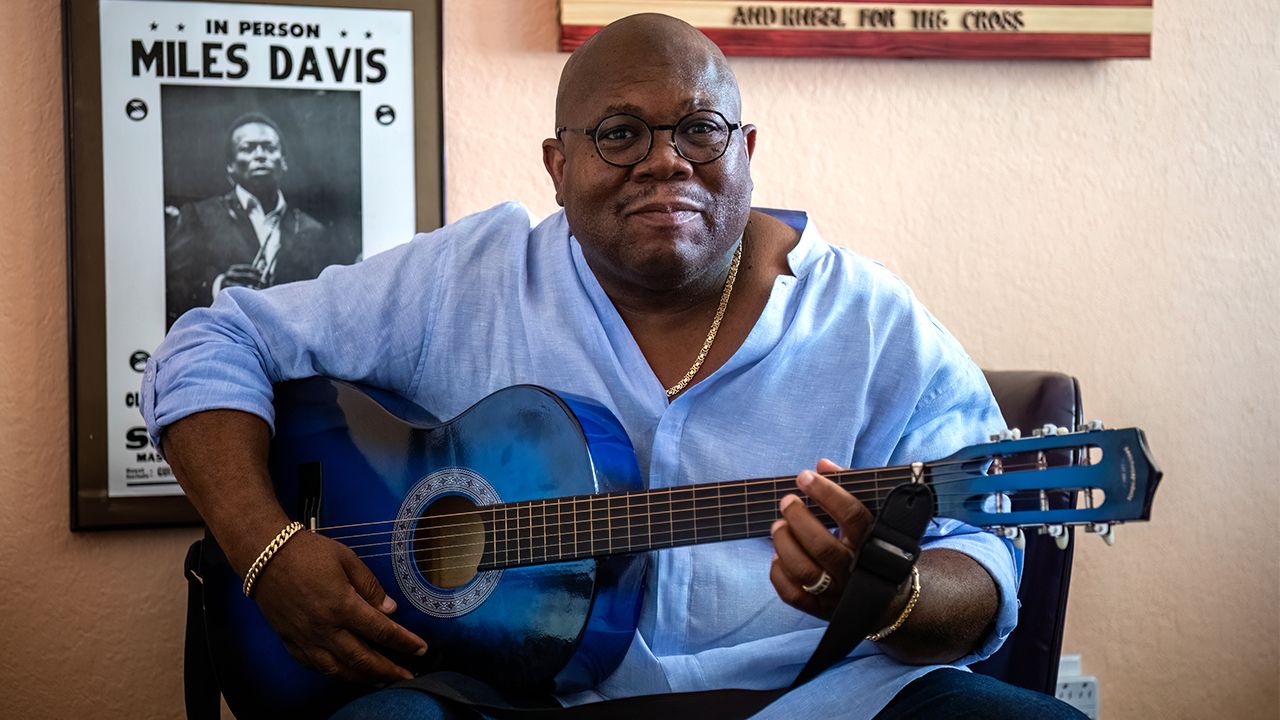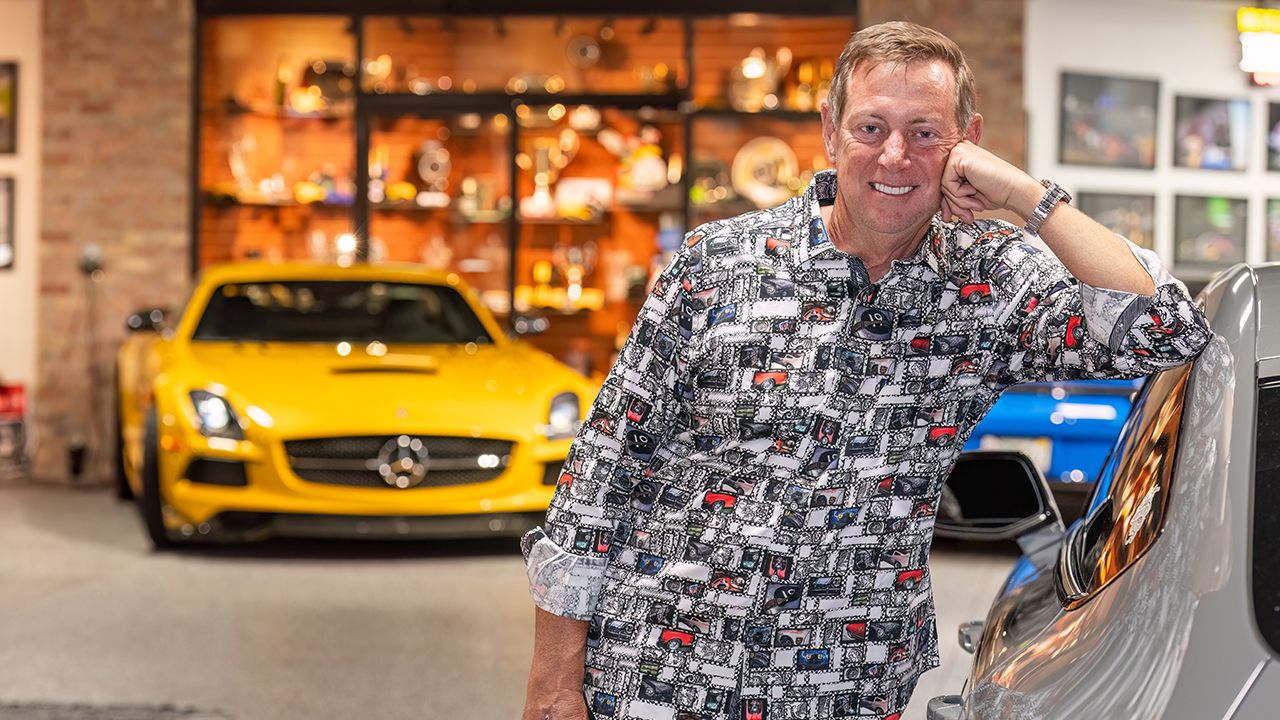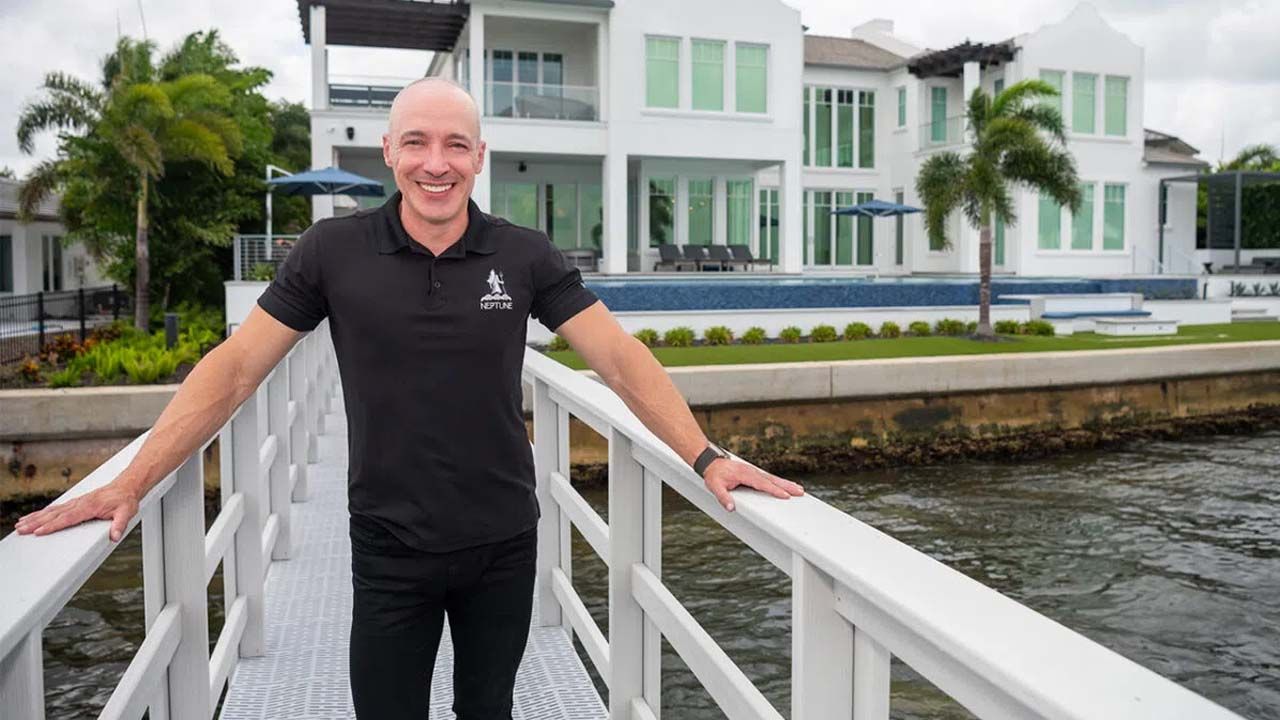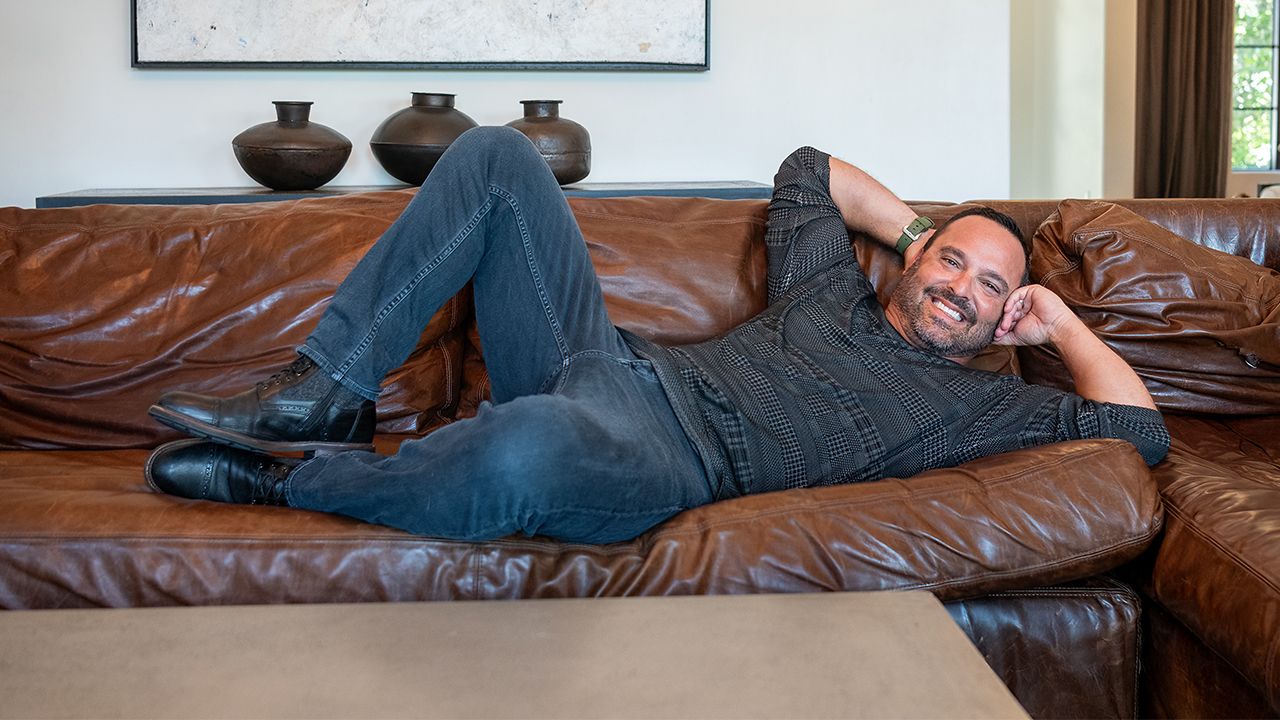Photos by Michael McCoy
This is a story of a little boy who was born to a large family in India and had large ambitions for success.
After seizing any, and every, opportunity to pursue education, he found himself in the United States … with only a few hundred bucks in his pocket.
That little boy was Nipesh Shah, and he now runs a company that produces billions of glass bottles a year and hundreds of million dollars of revenue. He has spent his career in strategic operations roles in industrial, chemical and packaging companies owned by top-quartile private equity firms.
He’s been the president and chief executive officer of Anchor Glass Container Corp., headquartered in Tampa, since July 2017. Anchor Glass is one of the largest privately-owned companies in the Tampa Bay area and is valued at more than $1 billion, according to Shah.
Anchor Glass has eight locations in the United States, and 2,000 U.S. employees and produces almost 5 billion glass containers on an annual basis.
WILD AMBITION
Growing up in Mumbai, Shah lived with eight other families in a house a little bigger than 1,000 square feet.
“I didn’t have my own bed until I was in eighth grade,” Shah says. “When I take my daughter to that house, she is shocked at how someone could live like that. Just to put things in perspective, we had one TV and all 55 people watched it together … and there were only two channels.”
This is not an uncommon living situation in Indian culture, which places value on keeping families close, often under one roof.
“The advantage there is we didn’t have to worry about going to friends outside,” Shah says. “You really learn about the human emotions, in the best possible way, staying in a household of 55 people. You see the oldest person and you see the youngest person, and everyone in between.”
Another part of Shah’s experience was fending for himself, in terms of getting money, starting at an early age.
“I always knew that I wanted to be in the technical field,” Shah says. “The only reason I wanted to be in the technical field is because one of the best entrepreneurs in India was in technology, and at that time in my life, I wanted to have that power. I wanted to have that money. I said, well, the only way to do that is to get a technical education.”
At 15 years old, Shah went to engineering school, which was a challenge for many reasons, not the least of which was the costliness of the books. He admits, he knows now that it was illegal, but at the time, took a job photocopying books so that he could read them without actually buying them.
“At that point you’re trying to fight your way through,” he says.
It was a testament to his tenacity to succeed, no matter what challenges he faced.
“When I was 19, I was 100 percent certain that I was going to be the best manufacturer in all of India,” Shah says. “And then slowly, I planned to take over the world.”
At this time in his life, he got into the business of benzene and toluene, doing importing and exporting, and he started his own toll manufacturing.
“There came a time when India became global and they changed the tax policy. Suddenly, I was sitting on an inventory, which I could not afford. I thought I was going to make it really good; instead, I failed in a spectacular manner,” Shah says.
He was 20 years old and had no money and didn’t have any path to create more wealth. Then someone, who he promised he would not name, asked him to come to the U.S. He decided to travel to Ohio with dreams to do better in life.
“In my mind, Ohio was exactly like New York City,” he says, with a laugh.
COMING TO AMERICA
Shah arrived at age 20, with less than $500 to his name.
“I literally came, and I remember sitting on a plane trying to figure out how the seatbelt worked. It felt like I was coming from a small village,” Shah says.
Shah had a small culture-shock moment after he vacated the flight from India to London, as he made his way to the States.
“I landed in Heathrow Airport and I needed water. In India, you go get water, you get it for free and it’s not a concern. I went to the stand and asked for water and this guy gave me a nice bottle. I say, ‘Thank you’ and he tells me I owe him money,” he recalls. “I had very little and had not expected to have to pay for water.”
He landed in Cleveland and still needed to make his way to Dover, more than 80 miles away. Since there was no public transport available, he had to take a taxi.
“In my mind, this taxi bill is rolling. And I’m like, ‘OK, I can’t afford this. It reached the $100 mark and 20 percent of what I have brought with me is already gone,’ ” he says. “And that’s just less than two hours in the U.S.”
The taxi driver took pity on the young immigrant and offered to take him the rest of the way, 50 miles at least, when he offered to walk on foot.
Shah began working as a chemist and earned his master’s degree at the University of Akron, all while working full time.
He then married his best friend, Ritu, who supported him through the most difficult times of his career.
Shah struggled a bit during his early adult years. He recalls a time when he couldn’t afford his own suit for an interview, he visited a dry cleaner and “borrowed” one for $10.
“I was thinking, ‘Please don’t let this be the suit of the person who is interviewing me,’” he says, and laughs at the memory. “I made a promise to myself that whatever I do, I will always make sure that I have the best custom clothes.”
He worked for Honeywell and was recruited by Momentive, a U.S.-based chemical company based in Columbus, Ohio. Shah describes this as his first exposure to the private equity world. From there, he moved to a Bain Capital-owned company to run a division for Altium Packaging.
“The goal was very simple, create long-term value and sell the company to long-term holders,” Shah says. “We sold it to the Loews Corp., which owns a group of hotels for $1.2 billion. And I was very clear that after this transaction, all I wanted to do was relax for six months … then the Anchor Glass opportunity came.”
A GLASS HALF-FULL OPPORTUNITY
Shah had never been to Tampa. He knew nothing about it.
“I literally left my last role on Monday and came [to Tampa] on a Friday,” Shah says. “The intention, at that point, was we would stay in Tampa for a year and then go back to Atlanta.”
It wasn’t meant to be.
“After coming here, we just fell in love with the city,” he says. “We absolutely love it here.”
Shah took on the role of president and CEO of Anchor Glass in 2017, and now he’s the company’s single largest individual stock owner.
“I believe in the long-term future of the company. And we have a very simple vision: To create positive societal impact by providing food, clothing, shelter and education for the communities in which we operate using glass bottles as a currency,” he says. “Our people know that when they make some good bottles, they’re making a good impact with the community.”
Three years ago, Anchor Glass was less than 50% a beer company, regarding the bottles it manufactured. Now, it is closer to 20% beer bottles with a much more diverse portfolio of products. In the last three years, the company has profitably grown and added more than 65 new brands with premier consumer packaged goods companies.
The company currently produces glass for five different categories: beer (for example, Samuel Adams), food (e.g., Ragu and Bertolli sauces), liquor (e.g., Tito’s Vodka and Crown Royal), ready-to-drink (e.g., Mike’s Hard Lemonade, Smirnoff) and beverages (e.g., Honest Tea, Pepsi).
In the last three years, Anchor Glass has invested more than $300 million to support new growth via capacity expansion and automation.
Shah has plans for a sizable incremental investment of more than $150 million in the next 24 months.
FAMILY & FAITH
Shah met his wife in 1995, and then married in 2000. He has one daughter and, still, has only one television in the home. The family prefers to spend their evenings together reading, often leading to lively discussions.
“Every night, we have some kind of debate on the social-political-economic situation,” he says.
The family also loves to travel. His 12-year-old daughter, Esha, was born in Melbourne, Australia. She already has one passport full and is working on her second one.
“She has been to Australia, New Zealand, Europe and many Asian countries as well,” Shah says.
The Shahs practice Jainism, an Indian transtheistic religion that emphasizes multiple perspectives, spiritual purity and enlightenment through disciplined nonviolence to all living creatures.
“So, most of the things which we have seen in the world is all about absolutes. I hate this thing or I love this thing. In our household, we never use the word ‘hate,’ ” Shah says, adding in jest, that maybe it’s heard in reference to a sports team playing against his beloved Ohio State Buckeyes or New York Yankees. “We consider all souls created equal. Even when I go to the temple, it is more about reflecting on—how do I create more emotional awareness and intelligence for myself? How do I have the right belief, right knowledge and right conduct always?”
This translates to a highly philanthropic lifestyle for the Shah family. Shah and his wife are particularly passionate about supporting education as their primary cause.
“My wife and I, we sponsor many students’ for primary education for a number of institutions where they cannot afford it. That aligns with our principles. You can give someone food, clothing and shelter, but if you give them an education, they will make a better life,” he says.
Shah declined to go into detail about how much he gives, and how often, not wanting to draw attention to such things. It would be safe to say thousands of families have benefited from the family’s generosity.
Shah never forgot where he came from and doesn’t turn a blind eye to those in need. Passionate about his family, and the work his company does, he’s come a long way from that borrowed $10 suit.
“When I teach entrepreneurship classes, the students sometimes ask me if I would do the same thing over again or if I would change things. My answer is usually, ‘Absolutely. I’d do the same thing all over again,’ ” he says. “But when I think back, I don’t know if I would have the same courage to go through with it again.” ♦



